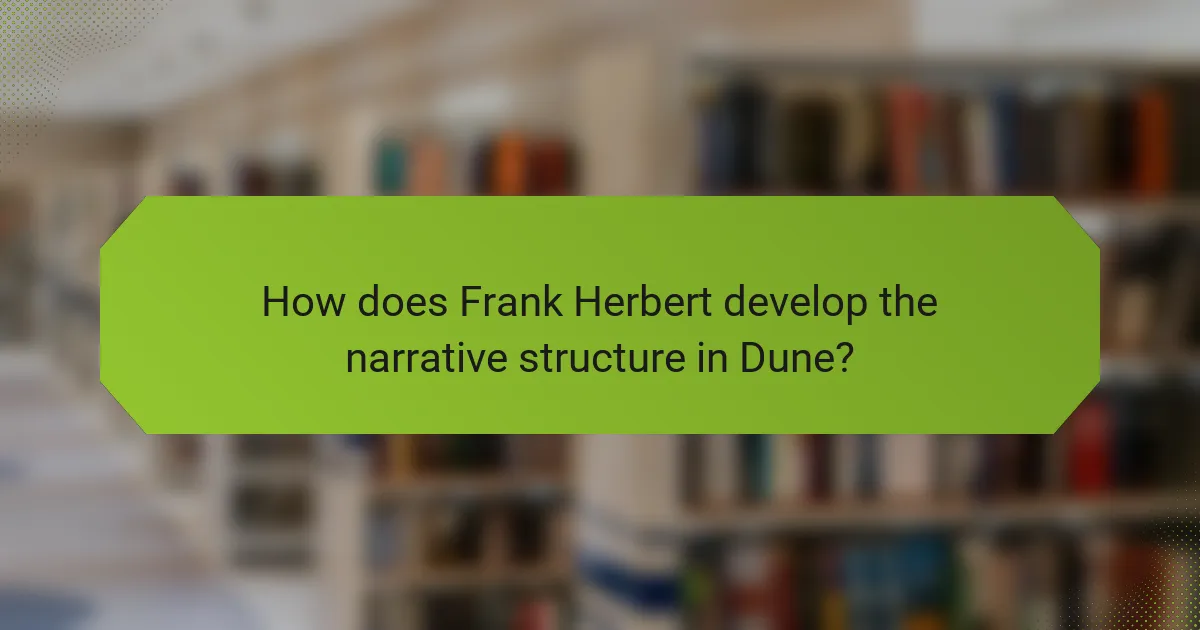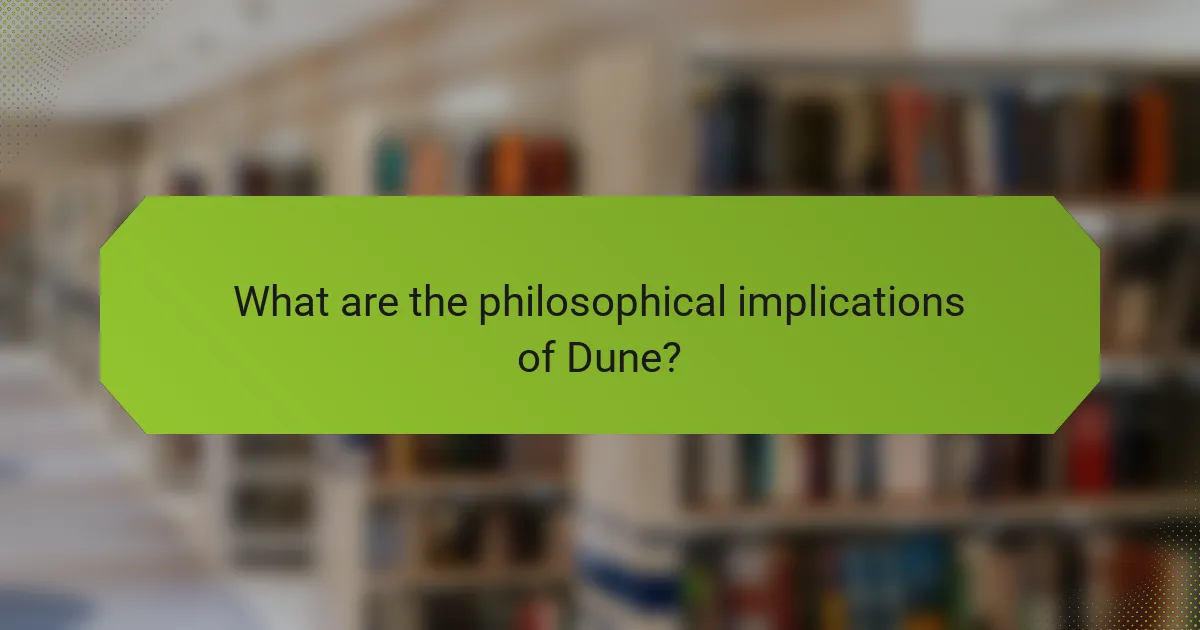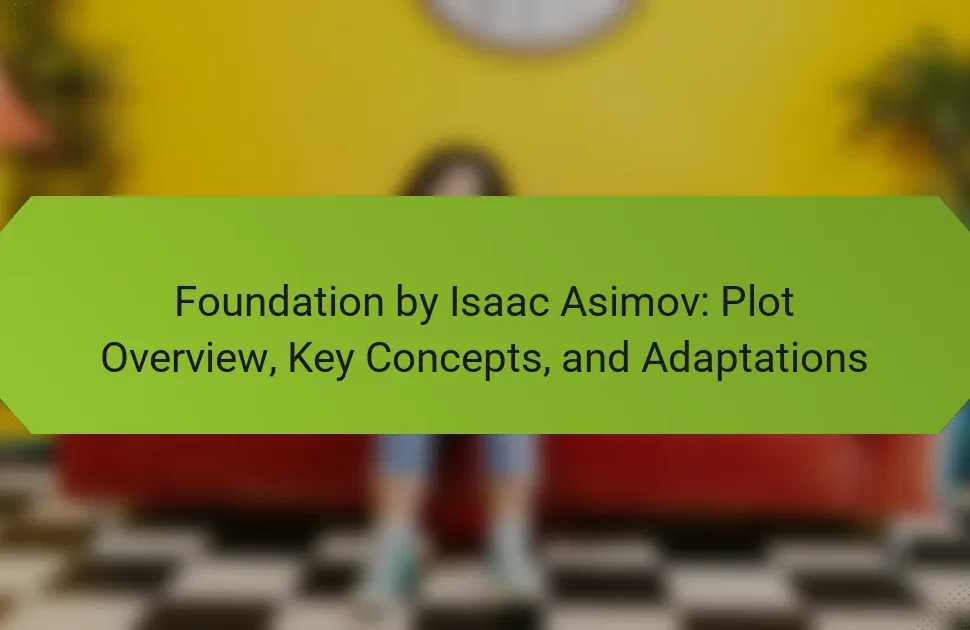Dune by Frank Herbert offers insights into power dynamics, ecological themes, and complex character relationships. The novel’s exploration of imperialism and resource exploitation shapes its narrative. Key characters like Paul Atreides and Baron Harkonnen embody the struggles for control and destiny. Herbert’s intricate world-building highlights the significance of the desert planet Arrakis and its vital resource, spice, while addressing philosophical questions about humanity’s choices and their consequences.

What are the central themes explored in Dune?
Dune explores themes of power, ecology, religion, and humanity’s relationship with technology. The struggle for control over the desert planet Arrakis highlights the complexities of imperialism and resource exploitation. Additionally, the novel delves into prophecy and destiny, examining how these concepts shape individual and collective identities. The interplay between environmental factors and societal structures underscores the importance of ecological awareness.
How does the theme of power manifest in Dune?
The theme of power in Dune manifests through political intrigue, control over resources, and the struggle for dominance. Characters like Paul Atreides navigate complex power dynamics influenced by the spice melange, which serves as a vital resource. The manipulation of religion and prophecy further illustrates how power shapes societal structures. Ultimately, Dune explores the multifaceted nature of power and its impact on individuals and civilizations.
What role does ecology play in the narrative of Dune?
Ecology plays a crucial role in “Dune” by shaping the story’s themes and character motivations. The desert planet Arrakis exemplifies how environmental factors influence society, politics, and resource management. Herbert illustrates the interconnectedness of ecology and human behavior, highlighting the consequences of ecological exploitation. The spice melange, a vital resource, underscores the theme of dependency on natural systems. The ecological dynamics of Arrakis drive the narrative, emphasizing sustainability and the need for balance between civilization and nature.
How does Dune address the concept of prophecy and destiny?
Dune addresses prophecy and destiny by exploring the tension between free will and predestination. The narrative presents prophecy as a guiding force for characters, particularly Paul Atreides, whose journey is shaped by visions of the future. Herbert illustrates how these prophetic elements influence decisions, creating a complex interplay between individual agency and fate. The unique attribute of Dune is its portrayal of prophecy not as a fixed outcome but as a fluid concept, allowing characters to navigate their destinies while confronting the weight of expectation.

Who are the key characters in Dune?
The key characters in Dune include Paul Atreides, Lady Jessica, Duke Leto Atreides, Baron Vladimir Harkonnen, and Chani. Paul Atreides is the protagonist and heir to House Atreides, known for his prescient abilities. Lady Jessica is his mother, a member of the Bene Gesserit sisterhood, who plays a crucial role in the plot. Duke Leto Atreides is Paul’s father, a noble leader striving for justice. Baron Vladimir Harkonnen is the primary antagonist, representing corruption and greed. Chani, a Fremen warrior, becomes Paul’s love interest and ally. Each character embodies unique attributes that drive the story’s themes of power, betrayal, and destiny.
What motivates Paul Atreides throughout the story?
Paul Atreides is motivated by a desire for justice, loyalty to his family, and the need to fulfill his destiny. His journey is driven by the struggle against oppression on Arrakis and the quest for power to protect his people. Additionally, the influence of prophecy and the burden of leadership shape his decisions. The complexities of his motivations reflect the themes of sacrifice and responsibility throughout the narrative.
How do the Bene Gesserit influence events in Dune?
The Bene Gesserit significantly influence events in Dune through their political maneuvering and manipulation of key figures. They employ their unique abilities, such as the Voice, to exert control over others. Their breeding program aims to create the Kwisatz Haderach, a superbeing capable of bridging time and space. This long-term strategy shapes the power dynamics in the universe, impacting the fate of House Atreides and the overall conflict for control of Arrakis. Their presence is a constant factor in the unfolding events, demonstrating their profound impact on the narrative.
What is the significance of Duke Leto Atreides in the plot?
Duke Leto Atreides plays a crucial role in “Dune” by embodying leadership, honor, and the complexities of power. His commitment to justice and the welfare of his people contrasts with the treachery surrounding him. Leto’s decisions set pivotal events in motion, influencing the fate of House Atreides and the planet Arrakis. His legacy profoundly shapes the journey of his son, Paul, highlighting themes of sacrifice and destiny.

How is the world of Dune constructed?
The world of Dune is constructed through intricate world-building, exploring themes of politics, ecology, and religion. Frank Herbert creates a detailed universe with diverse planets, notably Arrakis, emphasizing the importance of the spice melange. The socio-political structures, such as the feudal system, shape character motivations and conflicts. Herbert’s use of prophecy and myth adds depth, making the narrative rich and immersive. The interplay between human and environmental factors highlights the fragility of ecosystems, reinforcing the series’ ecological themes.
What are the unique features of the desert planet Arrakis?
Arrakis, the desert planet in “Dune,” features unique characteristics such as extreme aridity, vast sand dunes, and the presence of giant sandworms. Its ecology is shaped by the spice melange, which is vital for space travel and has profound effects on human consciousness. The planet’s harsh climate fosters a culture adapted to survival, emphasizing resource conservation and resilience. Arrakis serves as a critical backdrop for the political and spiritual themes explored in the narrative.
How do the cultural elements of Dune reflect real-world societies?
The cultural elements of Dune reflect real-world societies by exploring themes of power, ecology, and religion. The complex political structures in Dune mirror historical empires, emphasizing the influence of leadership and governance on societal dynamics. For example, the struggle for control over the spice resource symbolizes economic conflicts seen throughout history. Additionally, the ecological themes highlight the relationship between societies and their environments, paralleling contemporary environmental issues. The portrayal of religion in Dune illustrates how belief systems shape cultures, much like in various global societies.
What is the importance of spice in the world of Dune?
Spice is crucial in Dune as it enhances mental abilities, extends life, and is vital for space travel. The unique spice, melange, is the most valuable substance in the universe, driving the economy and politics of the Dune universe. Its rarity and unique properties create conflict among factions vying for control. The spice embodies themes of power, addiction, and ecological balance, illustrating its profound significance in the narrative.

How does Frank Herbert develop the narrative structure in Dune?
Frank Herbert develops the narrative structure in Dune through a multi-layered approach that intertwines character perspectives, intricate world-building, and thematic depth. The use of shifting viewpoints allows readers to experience the complex socio-political dynamics of the universe. Herbert incorporates elements such as prophecy and destiny, which enhance the narrative’s richness. The nonlinear timeline and interspersed excerpts from fictional texts further deepen the immersive experience. This structure not only engages readers but also reflects the intricate themes of power, ecology, and human evolution present in the story.
What narrative techniques are employed to enhance storytelling?
Dune by Frank Herbert employs various narrative techniques to enhance storytelling, including intricate world-building, character development, and thematic depth. These techniques create a complex universe that immerses readers. The use of multiple perspectives allows for a richer understanding of the plot and characters. Symbolism and allegory further deepen the narrative, inviting readers to explore philosophical and ecological themes. Additionally, Herbert’s use of foreshadowing builds suspense and engages the audience throughout the story.
How does the pacing affect the reader’s experience in Dune?
Pacing significantly influences the reader’s experience in “Dune” by creating tension and enhancing immersion. Herbert’s deliberate pacing allows for deep character development and intricate world-building. Slow moments enable readers to absorb the complex themes, while rapid sequences heighten emotional stakes. This balance cultivates a rich narrative that engages readers on multiple levels.

What are the philosophical implications of Dune?
Dune explores profound philosophical implications, particularly regarding power, ecology, and human nature. The intricate dynamics of control and leadership reflect the moral complexities of governance. Herbert’s portrayal of the desert planet Arrakis emphasizes the interconnectedness of environment and society, highlighting ecological sustainability. Additionally, the exploration of prescience raises questions about free will versus determinism, challenging readers to consider the nature of destiny.
How does Dune explore the nature of leadership?
Dune explores the nature of leadership through complex characters and their moral dilemmas. The narrative illustrates different leadership styles, particularly through Paul Atreides, who grapples with the burden of destiny and power. Herbert emphasizes the consequences of leadership decisions, showcasing the interplay between authority, responsibility, and the often harsh realities of governance. The story highlights the tension between visionary leadership and the ethical implications of wielding power, ultimately questioning what it means to lead effectively in a turbulent universe.
What ethical dilemmas are presented in Dune?
Dune presents several ethical dilemmas, primarily centered around power, resource exploitation, and environmental stewardship. The conflict over the spice melange highlights the moral implications of addiction and dependency. Additionally, the manipulation of religious beliefs raises questions about leadership and authority. The struggle for survival in a harsh desert environment poses dilemmas regarding sacrifice and loyalty. Lastly, the consequences of genetic manipulation and prescience challenge the ethics of free will and determinism.

How has Dune influenced modern science fiction?
Dune has profoundly influenced modern science fiction through its intricate world-building, complex themes, and character development. Its exploration of ecological and political issues has set a benchmark for the genre.
The richly detailed universe of Dune presents a unique blend of mysticism, technology, and human psychology, shaping narratives in contemporary sci-fi. Authors often draw from Herbert’s themes of power, survival, and the interplay between humanity and environment.
Dune’s unique attributes include the concept of “the spice” as a metaphor for resource dependence, which resonates in modern discussions about ecology and economics. Its character-driven storytelling has inspired a shift towards deeper character exploration in science fiction narratives.
As a result, Dune’s legacy continues to inspire filmmakers, writers, and creators, pushing the boundaries of what science fiction can explore and achieve.
What are the notable adaptations of Dune in film and media?
Dune has seen notable adaptations in film and media, including David Lynch’s 1984 film, which became a cult classic, and Denis Villeneuve’s 2021 adaptation, praised for its visual fidelity. The 2000 miniseries expanded on the novel’s themes and characters, while various video games and animated series have explored its universe. Each adaptation uniquely interprets Frank Herbert’s intricate world-building and complex themes, appealing to different audiences.
How do contemporary works reference or build upon Dune’s concepts?
Contemporary works often reference or build upon Dune’s concepts by exploring themes of ecology, power dynamics, and the hero’s journey. Many authors have drawn inspiration from Herbert’s intricate world-building and character development. For instance, the emphasis on environmentalism in Dune has influenced various science fiction narratives, highlighting the consequences of resource exploitation. Additionally, the complex political intrigue and social structures present in Dune resonate in modern works, reflecting current societal issues. The archetype of the reluctant hero, as embodied by Paul Atreides, continues to appear in contemporary storytelling, showcasing the lasting impact of Herbert’s vision.

What lessons can readers take away from Dune?
Readers can take away lessons about power, ecology, and human nature from Dune. The narrative explores the complexities of leadership through Paul Atreides’ journey, illustrating the burdens of power and prophecy. The intricate world-building emphasizes ecological interdependence, highlighting the consequences of resource exploitation. Additionally, Dune delves into the intricacies of human relationships, loyalty, and betrayal, prompting reflections on personal and societal responsibilities. These themes resonate with contemporary issues, making Dune a profound commentary on humanity’s choices and their impact on the world.
What are the best practices for engaging with the themes of Dune?
To engage effectively with the themes of Dune, focus on the intricate interplay of power, ecology, and human nature. Analyze character motivations and their connections to the broader societal implications. Consider the philosophical questions posed by the narrative, such as the nature of destiny and free will. Explore the significance of the desert environment and its impact on culture and survival. Engage with the text through discussions or creative interpretations to deepen understanding of its complex themes.
What common mistakes do readers make when interpreting Dune?
Readers often misinterpret “Dune” by focusing too heavily on its surface-level plot instead of its deeper themes. Common mistakes include overlooking the complexities of power dynamics, environmentalism, and the intricacies of character motivations. Many fail to recognize the philosophical underpinnings that shape the narrative and the significance of the desert planet Arrakis as a character itself. Additionally, readers might misjudge the role of prophecy and fate, treating them as mere plot devices rather than as reflections of human agency and choice. Understanding these layers enhances the reading experience and reveals the richness of Herbert’s world-building.




